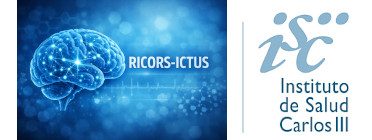Hipertens Riesgo Vasc. 2022 Jun 5:S1889-1837(22)00044-7. doi: 10.1016/j.hipert.2022.05.005. Online ahead of print. PMID: 35676196
Publicaciones: junio 2022
Editorial: Remote Ischemic Conditioning (Pre, Per, and Post) as an Emerging Strategy of Neuroprotection in Ischemic Stroke
Front Neurol. 2022 Jun 23;13:932891. doi: 10.3389/fneur.2022.932891. eCollection 2022. PMID: 35812090
FUNDING: This study was funded by Carlos III Health Institute and cofunded by European Union (ERDF A way to make Europe) Project (PI17-01725) and the RICORS Research Network to FP, NIH Funding (R01 NS099455, 1UO1NS113356, and R01 NS112511) to DH, Italian Ministry of Health – PRIN 017CY3J3W to SB. French National Minsitry of Health
Grant 2014 AOR13032 to FP, TE is the Chief Investigator for the Remote ischaemic conditioning after stroke trial (RECAST), RECAST-2, and RECAST-3 funded through the NIHR Efficacy and Mechanism Evaluation (EME) Programme, Award ID NIHR128240.
Grant 2014 AOR13032 to FP, TE is the Chief Investigator for the Remote ischaemic conditioning after stroke trial (RECAST), RECAST-2, and RECAST-3 funded through the NIHR Efficacy and Mechanism Evaluation (EME) Programme, Award ID NIHR128240.
Machine Learning-Based Identification of Target Groups for Thrombectomy in Acute Stroke
Transl Stroke Res. 2022 Jun 7. doi: 10.1007/s12975-022-01040-5. Online ahead of print. PMID: 35670996
Genetics and Epigenetics of Spontaneous Intracerebral Hemorrhage
Int J Mol Sci. 2022 Jun 9;23(12):6479. doi: 10.3390/ijms23126479. PMID: 35742924
Abstract: Intracerebral hemorrhage (ICH) is a complex and heterogeneous disease, and there is no effective treatment. Spontaneous ICH represents the final manifestation of different types of cerebral small vessel disease, usually categorized as: lobar (mostly related to cerebral amyloid angiopathy)
and nonlobar (hypertension-related vasculopathy) ICH. Accurate phenotyping aims to reflect these biological differences in the underlying mechanisms and has been demonstrated to be crucial to the success of genetic studies in this field. This review summarizes how current knowledge on genetics
and epigenetics of this devastating stroke subtype are contributing to improve the understanding of ICH pathophysiology and their potential role in developing therapeutic strategies.
and nonlobar (hypertension-related vasculopathy) ICH. Accurate phenotyping aims to reflect these biological differences in the underlying mechanisms and has been demonstrated to be crucial to the success of genetic studies in this field. This review summarizes how current knowledge on genetics
and epigenetics of this devastating stroke subtype are contributing to improve the understanding of ICH pathophysiology and their potential role in developing therapeutic strategies.
Acknowledgments: Supported in part by Spain’s Ministry of Health (Instituto de Salud Carlos III, Fondos FEDER, RICORS-ICTUS RD21/0006/0021). Juan Rodés research contract (JR18/00004).
Matrix Metalloproteinase 10 Contributes to Choroidal Neovascularisation
Biomedicines. 2022 Jun 30;10(7):1557. doi: 10.3390/biomedicines10071557. PMID: 35884862
Abstract: Age-related macular degeneration (AMD) is currently the main cause of severe visual loss among older adults in developed countries. The pathophysiology has not been clarified, but oxidative stress is believed to play a major role. Matrix metalloproteinases (MMP) may play a prominent role
in several steps of the pathophysiology of AMD, especially in its neovascular form; therefore, there is of great interest in understanding their role in choroidal neovascularisation. This study aimed to elucidate the role of MMP10 in the development of choroidal neovascularisation (CNV). We have
demonstrated that MMP10 was expressed by retinal pigment epithelium cells and endothelial cells of the neovascular membrane, in cell culture, mouse and human retina. MMP10 expression and activity increased under oxidative stress conditions in ARPE-19 cells. MMP10-/- mice developed smaller
laser-induced areas of CNV. Furthermore, to exclude a systemic MMP10 imbalance in these patients, plasma MMP10 concentrations were assessed in an age- and sex-matched sample of 52 control patients and 52 patients with neovascular AMD and no significant differences were found between the groups, demonstrating that MMP10 induction is a local phenomenon. Our findings suggest that MMP10 participates in the development of choroidal neovascularisation and promotes MMP10 as a possible new therapeutic target.
in several steps of the pathophysiology of AMD, especially in its neovascular form; therefore, there is of great interest in understanding their role in choroidal neovascularisation. This study aimed to elucidate the role of MMP10 in the development of choroidal neovascularisation (CNV). We have
demonstrated that MMP10 was expressed by retinal pigment epithelium cells and endothelial cells of the neovascular membrane, in cell culture, mouse and human retina. MMP10 expression and activity increased under oxidative stress conditions in ARPE-19 cells. MMP10-/- mice developed smaller
laser-induced areas of CNV. Furthermore, to exclude a systemic MMP10 imbalance in these patients, plasma MMP10 concentrations were assessed in an age- and sex-matched sample of 52 control patients and 52 patients with neovascular AMD and no significant differences were found between the groups, demonstrating that MMP10 induction is a local phenomenon. Our findings suggest that MMP10 participates in the development of choroidal neovascularisation and promotes MMP10 as a possible new therapeutic target.
Funding: The present work was partially funded by Thea Laboratoires (01/2019), Fundación Jesús Gangoiti Barrera (2020–2021) and a collaborative project with Multiópticas (CUN 2019). Moreover, the work was partially supported by Red Temática de Investigación Cooperativa en Salud: ‘Prevention, Early Detection and Treatment of the Prevalent Degenerative and Chronic Ocular Pathology’ (RD16/0008/0011), Redes de Investigación Cooperativa Orientadas al Resultado en Salud (RICORS) de Terapias avanzadas (RD21/0017/0027), Enfermedades Inflamatorias (RD21/0002/0010) y Enfermedades vasculares cerebrales (RD21/0006/0008), Ministerio de Ciencia, Innovación y Universidades, Instituto de Salud Carlos III, 28029 Madrid, Spain.
Longitudinal evaluation of neuroinflammation and oxidative stress in a mouse model of Alzheimer disease using positron emission tomography
Alzheimers Res Ther. 2022 Jun 9;14(1):80. doi: 10.1186/s13195-022-01016-5. PMID: 35676734
Hereditary cerebral small vessel disease: Assessment of a HTRA1 variant using protein stability predictors and 3D modelling
Eur J Med Genet. 2022 Aug;65(8):104539. doi: 10.1016/j.ejmg.2022.104539. Epub 2022 Jun 12. PMID: 35705147
European Stroke Organisation guidelines on treatment of patients with intracranial atherosclerotic disease
Eur Stroke J. 2022 Sep;7(3):III-IV. doi: 10.1177/23969873221099715. Epub 2022 Jun 3. PMID: 36082254
The Added Value of Somatosensory Potential N70 in Neurological Prognosis After Coma by Acute Brain Structural Injury: A Retrospective Study
Ann Neurosci. 2022 Apr;29(2-3):129-136. doi: 10.1177/09727531221100255. Epub 2022 Jun 21. PMID: 36419518

